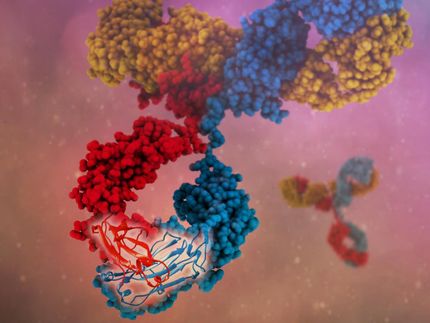Cell Genesys Reports Potential Breakthrough in Antibody Production Technology
Advertisement
Cell Genesys, Inc. scientists reported the development of a proprietary gene expression technology that enables the production of full-length monoclonal antibodies at commercially relevant levels from a single production cell line. Moreover, the time required to develop cell lines that can be used for commercial production can be significantly shortened from months to weeks. This novel technology, which employs adeno-associated viral (AAV) or other viral-based genetic engineering and a unique genetic linkage, may have broad application in commercial scale production of monoclonal antibodies and other complex therapeutic proteins, as well as in the long-term administration of therapeutic antibodies to patients.
Cell Genesys scientists, led by Drs. Jianmin Fang and Karin Jooss, reported this work in the journal Nature Biotechnology. "We believe our proprietary gene expression technology represents a significant improvement over currently available production technologies for therapeutic antibodies and other complex proteins," stated Peter K. Working, Ph.D., senior vice president of research and development. "While this exciting scientific accomplishment lies outside of our current business focus, we plan to generate value from our research and intellectual property through strategic licensing arrangements with other biotechnology and pharmaceutical companies."
Monoclonal antibodies have become important therapeutic agents for the treatment of cancer, arthritis, infection, and other serious diseases. The gene expression technology reported here enables rapid development and identification of single cell lines producing commercially relevant levels of biologically active monoclonal antibodies which could result in expedited and lower cost development, potentially saving as much as a year in overall development time. Moreover, recent experimental results indicate that the production levels achieved with the technology may be more than double those achieved with conventional technologies.
In addition to the manufacturing application, the new gene expression technology has the potential benefit in the long-term delivery of therapeutic antibodies, which are currently administered by repeated injection into patients. Chronic diseases such as cancer and arthritis may require long-term and repetitive antibody treatment regimens. An alternative approach for cost-effective delivery of therapeutic antibodies is to express the antibodies in vivo following gene transfer. Cell Genesys scientists demonstrated that this technology resulted in continuous expression of biologically active monoclonal antibodies at high concentrations in vivo for over four months and that such treatment has significant anti-tumor activity in preclinical tumor models.
Other news from the department research and development
Most read news
More news from our other portals
See the theme worlds for related content
Topic world Antibodies
Antibodies are specialized molecules of our immune system that can specifically recognize and neutralize pathogens or foreign substances. Antibody research in biotech and pharma has recognized this natural defense potential and is working intensively to make it therapeutically useful. From monoclonal antibodies used against cancer or autoimmune diseases to antibody-drug conjugates that specifically transport drugs to disease cells - the possibilities are enormous

Topic world Antibodies
Antibodies are specialized molecules of our immune system that can specifically recognize and neutralize pathogens or foreign substances. Antibody research in biotech and pharma has recognized this natural defense potential and is working intensively to make it therapeutically useful. From monoclonal antibodies used against cancer or autoimmune diseases to antibody-drug conjugates that specifically transport drugs to disease cells - the possibilities are enormous



























































